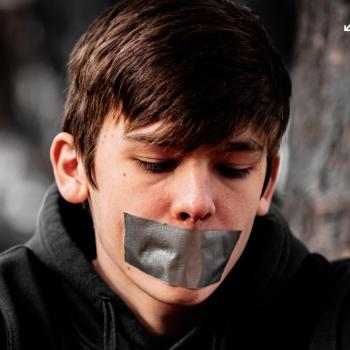Paul Merkley reports that in the quarter century that led to the creation of Israel in 1947–48, "the sturdiest champions of the restoration of the Jews to Israel were the evangelicals and fundamentalists. In the years when Britain was turning away from her commitments under the Balfour Declaration, and was supported in so doing by mainstream Christianity, evangelicals sustained the Zionist cause." And, according to David Rausch, "the [evangelical] movement on the whole recognized at an early date that the Holocaust was impending and believed that six million Jews had been murdered at a time when most liberal Christians were denouncing 'Jewish atrocity propaganda.'"
When Israel was founded in 1948 and then prevailed through the ensuing war to establish her independence, evangelicals and fundamentalists were ecstatic, seeing these events as the fulfillment of biblical prophecies. Mainline Protestants and Roman Catholics, however, "shifted into the ranks of those denouncing the new state." While evangelicals in the ensuing years preferred to accentuate the positive as Israel consolidated her strength, liberals tended to "dwell on the political embarrassments and the scandals and agonize about the many divisions" among Jews in Israel.
The June 1967 war was a watershed in Christian attitudes toward Israel. Evangelicals saw this once again as confirmation that Jews and Israel still had a role to play in God's ordering of history. From this point on, Merkley reports, Christian Zionists were generally but not exclusively conservatives theologically, while Christian anti-Zionists were generally but not exclusively theological liberals. World Council of Churches (WCC) documents typically moralized about the human weakness for raising mere geography ("real estate") to a spiritual status, and "invariably" treated the creation of the State of Israel as problematic—never as the solution to a problem. The National Council of Churches (NCC) denounced the 1978 Camp David Accords for allegedly ignoring the national ambitions of the Palestinian Arabs. According to Merkley, the mainline Protestant churches of the West joined the churches of the East in an attitude of resentment "shading over into active hostility."
The Roman Catholic attitude was more positive, notwithstanding initial skepticism. The May 14, 1948 issue of the semi-official daily of the Vatican, L'Osservatore Romano, declared, "Modern Israel is not the heir to biblical Israel. The Holy Land and its sacred sites belong only to Christianity: the true Israel." Yet the effect of two papal pronouncements that same year was to support the UN partition plan, which did not resolve the status of Jerusalem, and to therefore resist Jordan's claim to the city. In 1967 the Vatican stopped calling for "international status" for the city and began to urge an "international statute" that would protect the rights of two peoples and three religions, and guarantee access to holy places. Vatican II's Nostra Aetate stated that the Church's relationship with Jews cannot be like its relationship with any other religion because of Judaism's special relationship to Christianity. Catholic seminaries angered Muslims by beginning to teach more of the Jewish context of the gospels. The Vatican negotiated its own agreements with both Israel and the Palestinian Authority in the last fifteen years, and in 1994, under Pope John Paul II, ambassadors were exchanged between Israel and the Vatican.
Yet Mordechai Waxman complained that what is missing from virtually all Church documents is the recognition of the State of Israel as the "reaffirmation of the covenant with Abraham and his descendants." To be fair, one must say that since the Holocaust both the Catholic Church and mainline Protestant theologians have worked hard to affirm their solidarity with Jews and confidence that God's covenant with the Jewish people is ongoing. But two issues have been notably absent in most official church statements: the possibility that the restoration of the State of Israel has theological significance, and the notion of land as integral to Israel's covenant.
Fundamentalists and evangelicals, on the other hand, have generally welcomed the State of Israel as a sign that God's covenant with the Jews is ongoing. Led by Dutch theologian and pastor Jan Willem van der Hoeven, fundamentalists and evangelicals established the International Christian Embassy Jerusalem (ICEJ) in 1980. This organization sponsors the largest annual tourist event in Israel, a fall festival at the Feast of Tabernacles (Succoth) that in recent years has attracted an average of seven thousand visitors. It has also assisted immigrants from the former Soviet Union; by 1998 it had helped more than 40,000 and paid for fifty-one flights plus buses via Finland.
A host of fundamentalist and evangelical organizations work to support Israelis and their state: in addition to the ICEJ are the Christian Friends of Israel (it does relief work in Israel and assists Russian Jewish immigrants), the National Christian Leadership Conference for Israel (organizes clerics and academics to place ads in American newspapers and sponsor conferences), Voices United for Israel (works with Jewish organizations to sponsor pro-Israeli conferences and statements), the Religious Roundtable (mobilizes Christians to vote for American politicians who support Israel), Christian Friends of Israeli Communities (links settlements in "Judaea, Samaria and Gaza" with American churches), Christians' Israel Public Action Campaign (claims to educate Christians on Israel as the fulfillment of biblical prophecy), and the Evangelical Sisterhood of Mary in Darmstadt, Germany (seeks to keep the memory of the Holocaust alive and urges Christians to support the State of Israel).
While most Christian fundamentalists have expressed solid support for the Zionist project and see it as the fulfillment of biblical prophecy, evangelicals are more divided. Some prominent evangelical leaders such as John Stott, Gary Burge, and the editors of Sojourners magazine flatly reject Zionism, and are more concerned with perceived Israeli injustices toward Palestinians than modern Israel's connection to biblical promises. Yet a majority of evangelicals still see the modern State of Israel as in some sense a fulfillment of prophetic vision.
To read the complete article with the footnotes included, click here.




